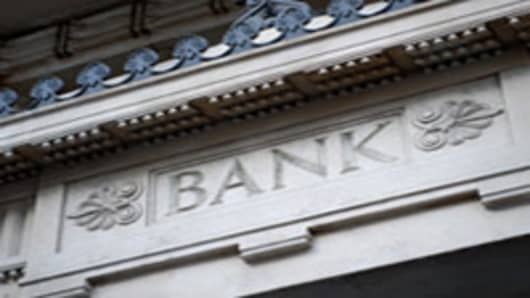In any murder mystery film, it pays to watch the boring gray man (or woman) in the corner; quiet, unobtrusive characters can be deadly.
So, too, in finance. Four years ago, the giant US money market fundsseemed some of the dullest actors in the global financial scene. But in 2007, they quietly helped to spark the crisis in the mortgage-backed securitiesworld, when they silently stopped rolling over bonds. Then, in 2008, they furtively wielded the knife again, pulling funding from some American banks and the “repo” — repurchase — markets.
As my colleagues Dan McCrum, Telis Demos and Jennifer Hughes have reported, in recent weeks these funds have been quietly backing away from European banks, either refusing to roll over loans, or slashing the maturities of the funds they provide. Fitch, for example, recently calculated that the largest US money market funds cut their exposure in absolute terms by $30 billion in July, even before the latest turmoil.
Separately, bankers estimate that Italian banks lost the equivalent of 40 billion euros — worth of money market funding in July. And while money market funds are still lending to French banks, the duration of deals has shrivelled dramatically, from several months to just a few weeks (at most). This matters, since French banks rely on money markets for about 200 billion euros of funding.
Now, the good news is that these raw numbers are small compared to the total volume of money that euro zone banks raise in the wholesale and interbank markets, which is around 8,000 billion euros. Better still, the European Central Bank has stepped into the gap to replace those vanishing funds. That has kept the system running, even as funding costs for euro zone banks have exploded to a level which are “massively prohibitive” — and thus unsustainable — for most banks, as Suki Mann, analyst at Societe Generale says.
But it is worth watching what those money market funds do next. For one thing, their antics tend to have a powerful impact on market psychology, particularly given folk market memories of 2008. Secondly, this quiet exodus has reminded US and European investors alike of something that policymakers have hitherto tended to downplay: namely the rather surprising degree to which euro zone banks depend on short term financing.
Morgan Stanley, for example, calculates that of the 8,000 billion euros funding that is currently in place for the largest 91 euro zone banks, some 58 percent needs to be rolled over in the next two years. More startling still, some 47 percent of this funding is less than a year in duration. Much of that is in euros.
However, as the saga of the money market funds shows, euro zone banks have been raising short-term dollar funds too, either to finance their portfolios of dollar assets, or to provide a cheap form of funding (which is then swapped back into euros.) The scale of this reliance is — thankfully — not nearly as large as it was in, say, 2007; back then euro zone banks had a vast network of dollar-funded mortgage vehicles, creating a funding mismatch that was about $800 billion, according to the Bank for International Settlements. Nevertheless, some element of this mismatch remains; hence the current crunch.
Is there any solution? In the long term, some euro zone banks probably need to rethink some of their funding profile. In the short term, however, Huw van Steenis, an analyst at Morgan Stanley, has recently been promoting another interesting idea: euro zone authorities should offer joint guarantees for debt issued by banks, as a form of “circuit breaker” to counteract panic. After all, the argument goes, the US offered such guarantees during its banking crisis, with considerable success. So did the UK. And if the euro zone authorities were to repeat this trick across the region — say by using funding from the European Financial Stability Facility, supplemented with a fee recouped from banks – it might well tempt money market funds (and others) back. After all most US money market funds are frantic to find somewhere — anywhere — safe to stash their cash, other than US Treasurys .
Will this happen? Don’t bet on it soon. After all, the official line from the euro zone policy world is that nothing is really wrong with the euro zone banks; thus they do not want to introduce crisis measures that echo 2008. Nor do they want to start arguing about how to price or fund any such guarantees, since that might force them to state which banks — and national banking systems — look risky.
But if the unease stalking the euro zone banking system does not dissipate soon, the concept of such “circuit breakers” should certainly be put on the table. And in the meantime, better keep watching those money market funds like a hawk; if nothing else, they are a powerful litmus test of just how much (or little) “credit” those euro zone banks can still attract on the world stage. In both the Latin and English sense of the word.


